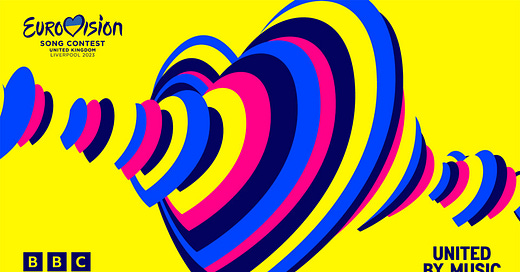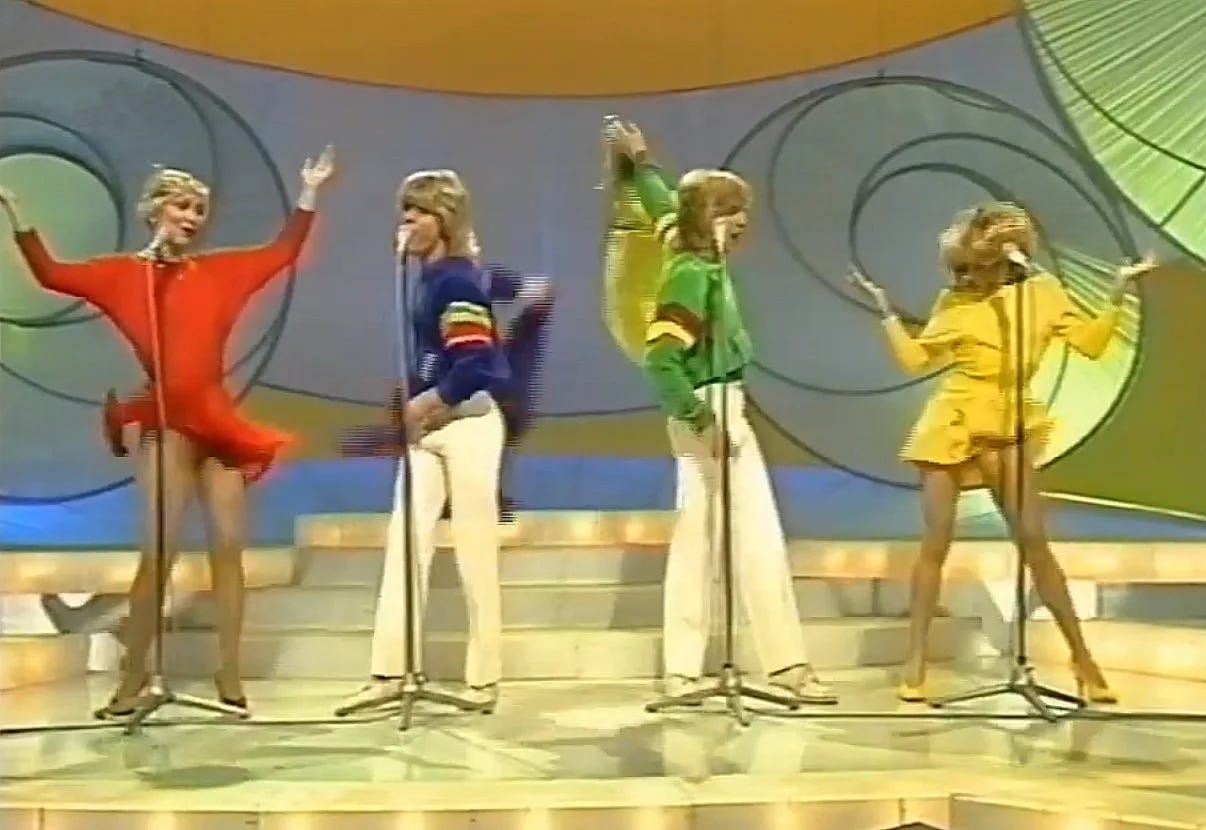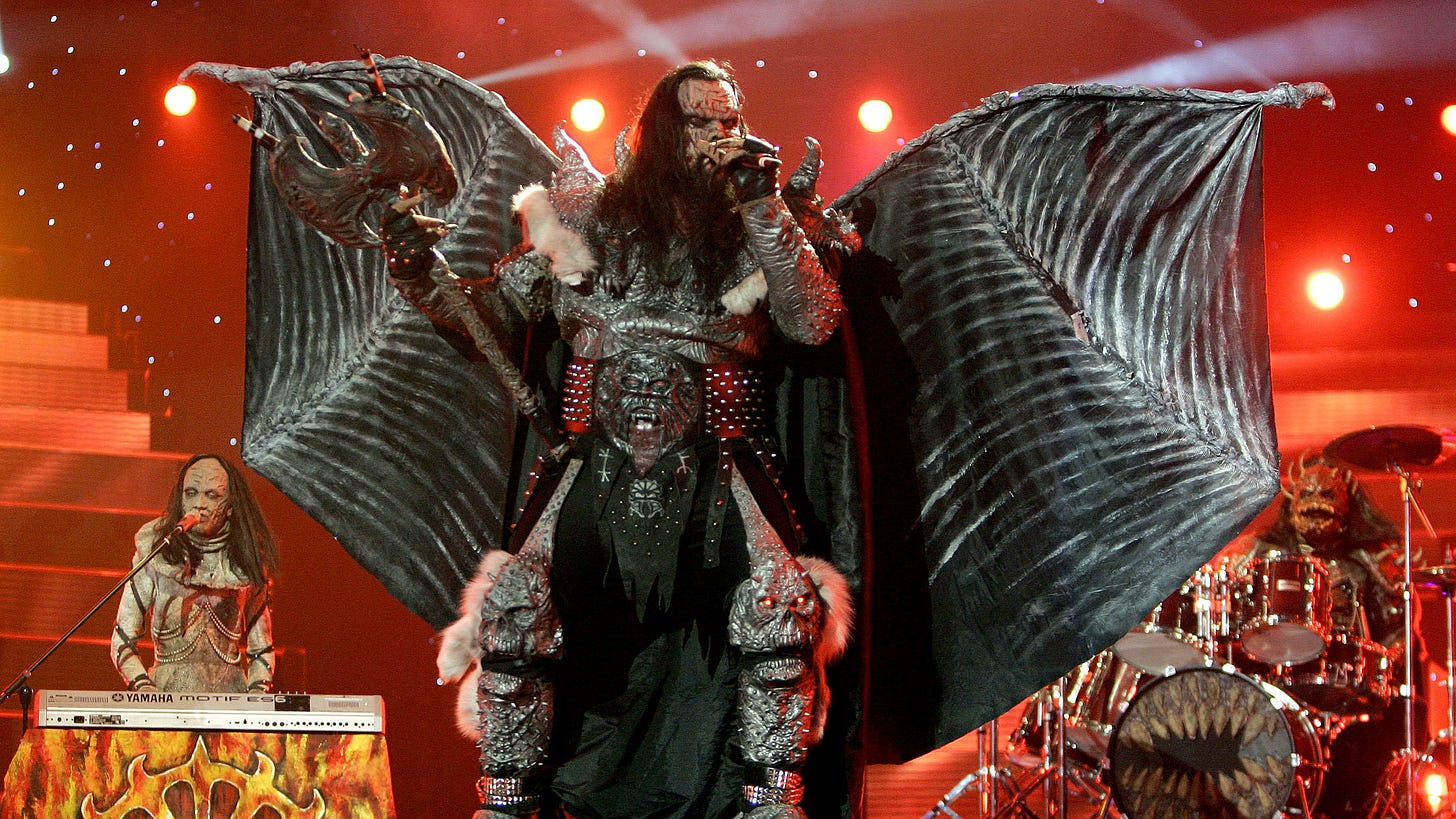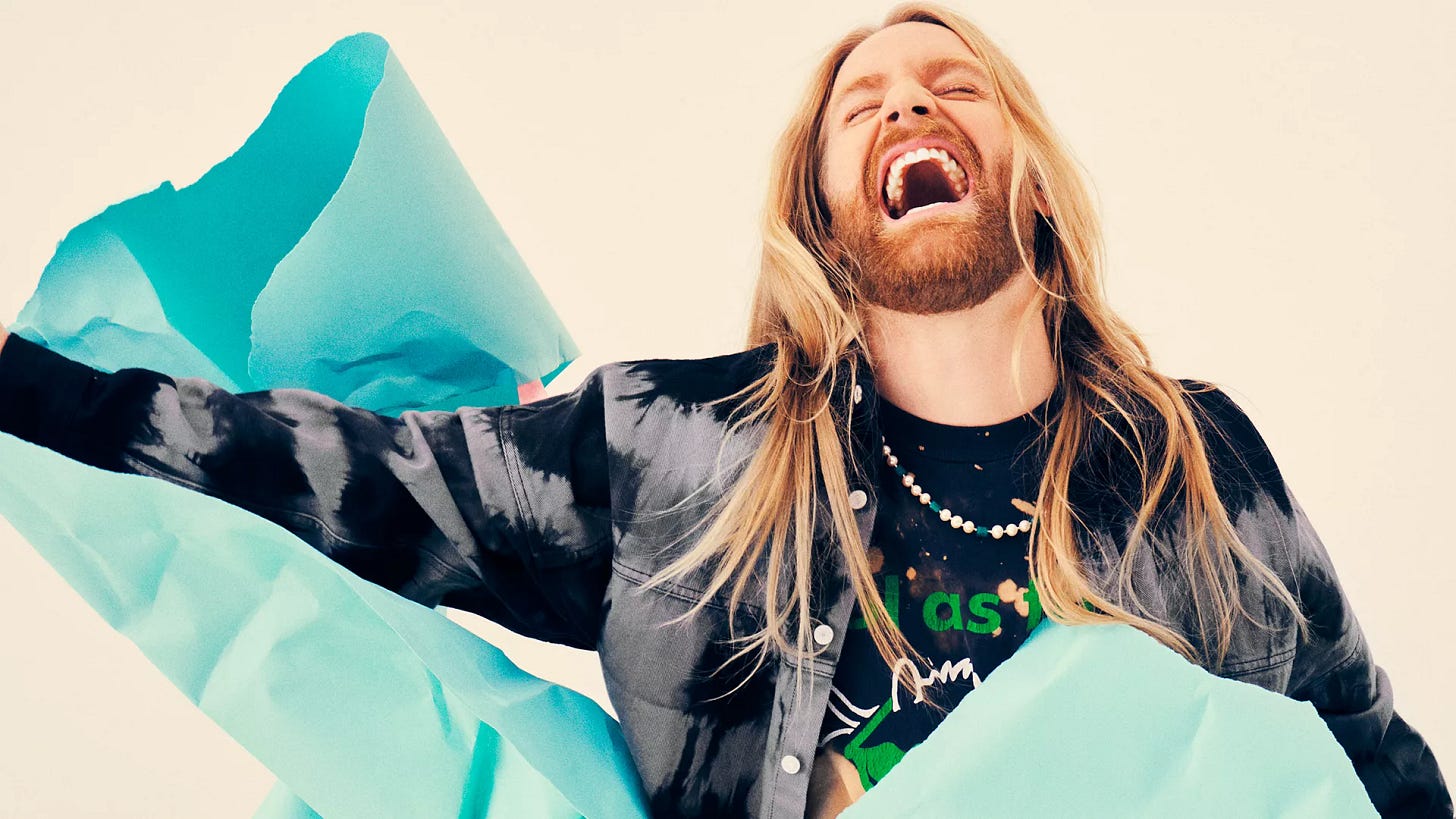How To (Nearly) Win The Eurovision Song Contest
TaP Management and Sam Ryder Restore UK Music Pride
If you are anywhere near Liverpool, England this week or have any access to UK media then you will have been immersed in the Festival du Fromage that is The Eurovision Song Contest
For those who don’t know the Eurovision Song Contest is a Europe wide songwriting competition that was designed to bring the Continent together after the Second World War by celebrating its pop music. The event has developed into the biggest (and possibly campest) music show on the planet and participants now also include Israel and Australia - don’t ask!
I should also explain how Eurovision works. It is a search for Europe’s best pop song presented in a massive live TV show watched by billions across the world. 30 something songs are presented and a jury in every country votes for the songs they like best - awarding from 0 - 12 points. After this the public in each country gets to vote for their favourite song -but neither jury nor public can vote for their own country’s song. There are usually some rumours of politics at play here with countries who are culturally close always voting for each other. For example Greece usually votes for Cyprus, and Norway usually votes for Sweden.
Here in the UK we are very lucky that we have been the birthplace of some of the most creative, innovative and successful rock stars in history. The Beatles, The Rolling Stones, Led Zeppelin, Elton John, Queen, David Bowie, Duran Duran, Soul 2 Soul, Amy Winehouse, Stormzy, Adele and The Spice Girls have all taken British music global! With that amazing musical heritage and talent pool you might think that the UK should be winning this contest every year - right?
However, success for the UK has been hard to come by. The country’s most recent wins were in 1997 with Katrina and the Waves and in 1981 when ‘MakingYour Mind Up’ by Bucks Fizz beat out Germany’s Lena Valaitis and the French contestant Jean Gabilou with a chanson called ‘Humanahum’ - I kid you not!
Bucks Fizz’ win was not without controversy because their song was, frankly, a bit shit but they had ‘choreography’ which involved the boys ripping off the girls’ skirts on the line “if you wanna see some more!” - check out this video at 1:25 to see how dodgy it truly was.
If You Wanna See Some More…Bucks Fizz Win Eurovision in 1981
The problem for the UK was not one of talent, but that the country did not really take Eurovision seriously. The country’s results deteriorated over time until we were regularly the bottom half of the results with a series of frankly poor songs that appealed to nobody.
After the embarassment of duo Jemini in 2003 who failed to achieve a single vote - the infamous nul points - the UK appeared to not really bother anymore. The country’s selections drifted from buskers to 76 year old former heart throb Englebert Humperdinck and there were even calls for the UK to pull out altogether.
BUT a big change came in 2022 when the UK decided to start taking the Eurovision Song Contest seriously. The BBC, who finance the UK’s part of Eurovision to the tune of up to £17m a year, decided to hire in some heavyweight professionals to get the best UK entrant possible.
They engaged Ben Mawson and Ed Millet of TaP Management to consult on the project and deliver a better result. TaP Management is the company behind the success of Dua Lipa, Lana Del Rey and Ellie Goulding so they know what it takes to achieve pop success.
TaP discovered that in Britain a narrative had developed around Eurovision which went something like “ we know its a bit shit but, it is also massively camp and a bit of fun to laugh at Finnish death metal groups singing nonsense while dressed as Viking sci-fi killer wizard creatures”
TaP made a conscious choice to change the narrative. Instead of celebrating the failure they decided to get serious about achieving success by employing some good old fashioned market analysis:
They compared the viewer demographics and the voting demographics to discover who was most engaged with the Eurovision song contest
They discovered that the largest, most engaged and fastest growing Eurovision audience group for the last 5 years is young people aged between 12 and 18. This group like pop music and is most likely to actually vote.
This group likes artists and songs they can engage with on social media - especially Tik-Tok.
TaP also recognised that all recent Eurovision winners had enjoyed hits and popularity across Europe prior to the contest.
By comparing these findings with how the event was promoted in the UK they saw that the contest was promoted mainly through Radio Two which is a national BBC radio station aimed at 35 - 65 year olds. Meanwhile the BBC also runs Radio One which is a national pop music station aimed at a younger audience but Eurovision had little or no presence here.
TaP then met with the BBC and convinced them to make Eurovision a Radio 1 supported event - more in line with the demographics of those most engaged. This shift was integral to changing the attitude towards Eurovision and making it a little more cool and credible - and it got new, younger fans on board.
The challenge, then, was to find a UK creative music artist with a strong social media following, who writes great songs that appeal to teens and is well known across Europe - quite a big ask! After an extended search and selection process TaP signed up singer / songwriter Sam Ryder. Sam had had some singles and an album out and had been on the live circuit for a couple of years. He has a big audience across Europe, plays festivals and is very creative on social media with over 14million followers on TikTok.
Once TaP established Sam Ryder as the creative solution they put phase two of their plan into operation. They treated Eurovision like a political campaign of winning hearts and minds with Sam travelling around major territories like Germany and Scandinavia in order to win support from local media and make great social content in each place to engage his fans.
The media coverage and messaging around Sam Ryder was targeted very precisely capitalising on his TikTok following and, once again, energising his fan base of 12-18 year olds across Europe who were more likely to vote for him. If you were outside of this key demographic you are unlikely to have heard about Sam until much later in the process.
The results of this analysis, planning and targeted activation were outstanding! The UK got its highest points score in decades, and came second to Ukraine - which was fine with everyone. The song Spaceman was a massive hit across Europe and in the UK it got to number one which no Eurovision song has done for decades! Real talent and visionary creativity when combined with strong factual analysis create unbeatable experiences for clients, customers and audiences.
I loved the song Spaceman and, when I first heard it on the radio it never occurred to me that is was a Eurovision song. His success was not just a random occurrence, it took creative vision, getting the right support in place and working hard to understand both the problem and the solution.
This year TaP have been retained to support the UK’s entry and have been working with talented singer / songwriter Mae Muller who will be performing I Wrote A Song in the Grand Final in Liverpool. There is stiff competition from bookmakers’ favourite Sweden, who are looking to equal Ireland’s seven Eurovision, wins but also strong entries from Belgium, Austria and that well known European nation, Australia!
Whoever wins, the Eurovision Contest 2023 will continue to prove that we are all United by Music.







